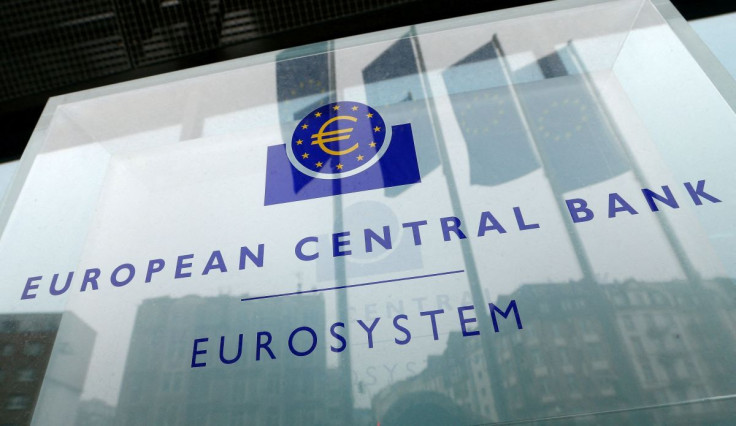ECB Sticks To Tightening Plans But Keeps Options Open

The European Central Bank stuck to plans on Thursday to finally end its stimulus programme in the third quarter but gave no further clues on its schedule, stressing uncertainties linked to the war in Ukraine.
The non-committal tone of its statement pushed euro zone bond yields and the single currency lower as markets trimmed expectations for the extent of rate hikes later this year.
"We will maintain optionality, gradualism and flexibility in the conduct of our monetary policy," ECB President Christine Lagarde told an online news conference, speaking from home where she is recovering from a coronavirus infection.
Lagarde said the conclusion of asset purchases could come at any time in the third quarter and insisted there was no clear timeframe for when rates would then start to rise, adding it could be weeks or even several months after the end of stimulus.
"We'll deal with interest rates when we get there," she insisted.
Among the world's most cautious central banks, the ECB is already lagging far behind nearly all its major peers, many of which started raising rates last year.
In the past two days alone, the central banks of Canada, South Korea and New Zealand have all increased the cost of borrowing. The U.S Federal Reserve is meanwhile expected to raise rates eight times or more over the next two years, leading the world in policy tightening. [TOP/CEN]
Lagarde stressed how exposed the 19 economies of the euro zone were to the Ukraine conflict, saying it was already damaging confidence and adding further disruption to global supply chains already hit by the pandemic.
"How the economy develops will crucially depend on how the conflict evolves, on the impact of current sanctions and on possible further measures," she said.
In particular, any move by the European Union to place an embargo on gas imports from Russia is seen as likely to throw Germany and the rest of the zone into recession.
Money markets trimmed rate hike bets to price in around 60 bps worth of tightening by year-end, versus an earlier 70 bps.
DILEMMA
The ECB has bought nearly 5 trillion euros of public and private debt since 2015, all with the aim of rekindling inflation, which undershot the bank's 2% target for years after the bloc's debt crisis.
But inflation has unexpectedly shot up in recent months, leaving policymakers in a dilemma as they try to reconcile two opposing economic forces.
On the one hand, inflation is already at a record-high 7.5%, with further increases expected. On the other, the euro zone economy is now stagnating, at best, with the impact of the war hurting households and businesses across its 19 countries.
Prior to the meeting, a host of conservative policymakers, including the central bank governors of Germany, the Netherlands, Austria and Belgium have all made the case for rate rises, worried that high inflation could linger too long.
Adding to their hawkish case, longer-term inflation expectations, a key gauge for the credibility of policy, have moved decisively above the ECB's 2% target, even though wages have yet to respond to higher prices.
Energy prices driven higher by the Ukraine war are draining household savings and uncertainty caused by the conflict is halting corporate investment. Banks are also tightening access to credit as they naturally do during wars, potentially exacerbating the downturn.
Policy doves, meanwhile, argue that most of the inflation is a result of external supply shocks, so that inflation will naturally fall over time.
They note that high energy prices tend to be deflationary over the longer term because they hold back growth, so there is a risk that euro zone inflation will once again fall too low.
(Writing by Mark John; Editing by Toby Chopra, Kenneth Maxwell and Catherine Evans)
© Copyright Thomson Reuters 2024. All rights reserved.




















